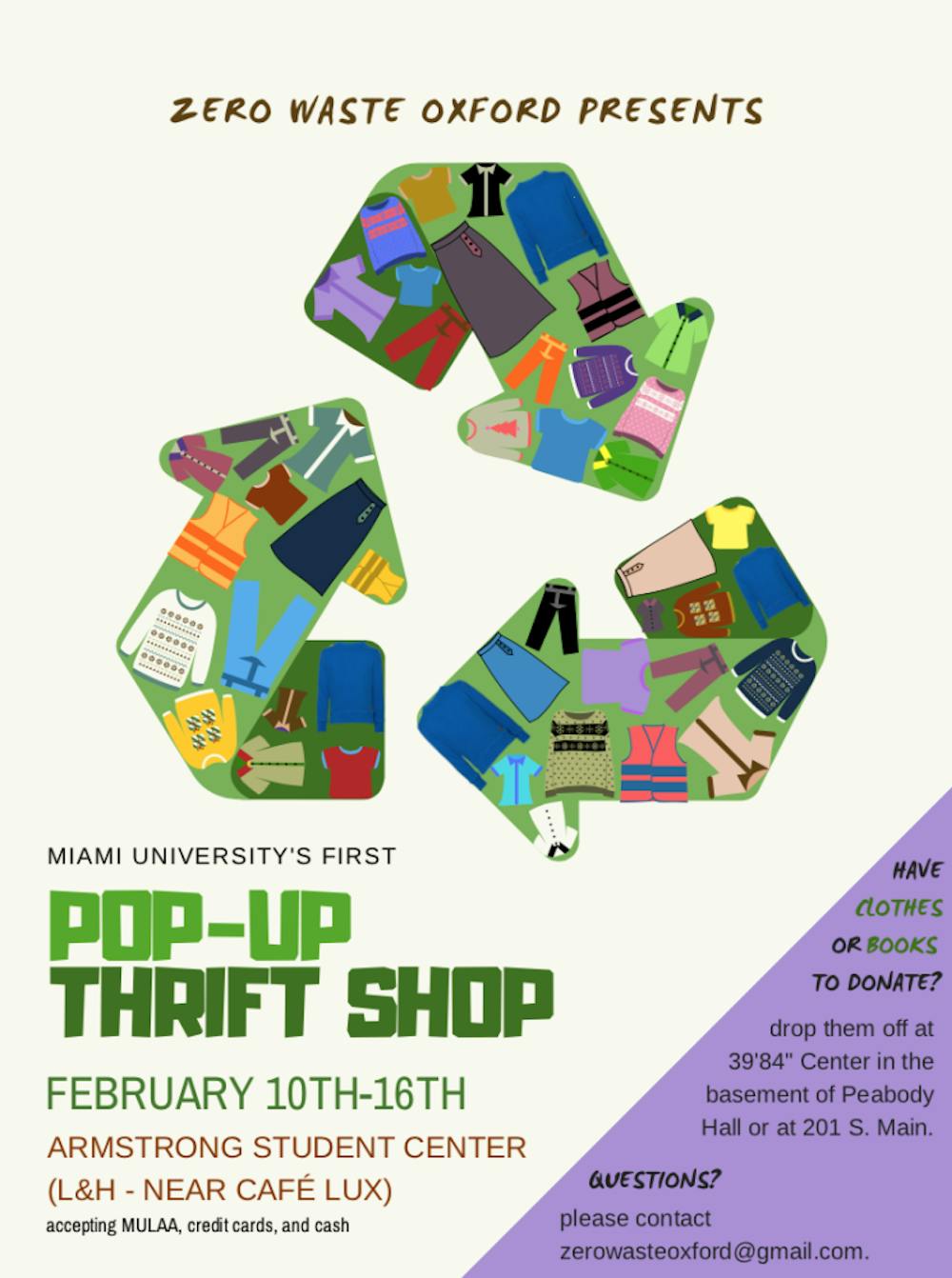By: NAIYI JIANG
Fashion is becoming so accessible and affordable nowadays. Stores like H&M, ASOS, and C&A give us a chance to dress in fashionable ways, and these cheap, fashionable clothes are becoming increasingly important to our lives. However, have you thought about the true cost of your cheap clothes? One key ingredient that doesn’t show up on your shirt’s label is water. Amazingly, it can take 2,700 liters to produce the cotton needed to make a single t-shirt. People making these clothes in developing countries make approximately $68 a month, which is barely enough to live their life. Your money can allow you to catch up with the fashion trends, but every dollar spent on new clothes has the ability to fuel social and environmental harm.However, there is a group of people on campus that are highly aware of this fast fashion phenomena; Miami’s Zero Waste organization is calling on everyone to donate quality clothes, books and accessories to the first pop-up thrift store on campus. They are going to inform people about the effects of fast fashion and encourage students to focus on sustainable consumption. They became inspired after a trip to the students for zero waste conference. At this conference, the Zero Waste club learned from other universities like the University of Pennsylvania, who already has a good system of running a thrift store.
Zero Waste is hoping to get more Miami University students to support and keep them running. Here are the details about the pop-up thrift store:
Where: Armstrong Student Center
When: Feb. 10-16 from 9 a.m. to 6 p.m.
Donations: Bring donations to 201 South Main Street or the basement of Peabody Hall


